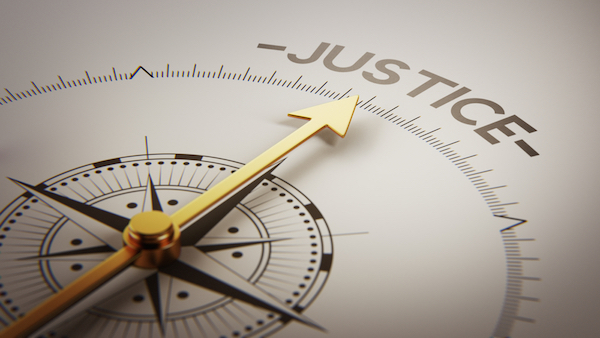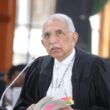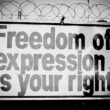NAIROBI,Kenya – Over the past three decades, Kenya has faced numerous challenges that have tested national unity and threatened to tear the country apart. From tribal clashes, deadly protests, and post-election violence (PEV) such as those seen in 2007-2008 to the ones a decade later.
During such time, the body politic of Kenya has found ways to come together, make concessions and share power, leading to a return to normalcy. However, the people who are caught up in violence are often forgotten, left alone to pick up what semblance of life is left after being violated by state and non-state actors. Several reports have documented the sexual violence, arson, unlawful use of force, and torture that Kenyans have endured throughout the years. The Truth, Justice, and Reconciliation Commission’s findings recorded such incidents and recommended reparations.
Baby Samantha Pendo, who was six months old when police officers stormed homes in Nyalenda during the 2017 post-election violence, has become a symbol of the cry for justice after she was bludgeoned to death by police during an operation that killed and maimed others. Was she a protestor? Did she vote?
After an inquest and investigations by IPOA, 12 Senior Officers are slated to take plea for crimes under the International Crimes Act, based on the principle of command and superior responsibility. Observers hope that this may help curb the impunity we have historically seen from police during widespread deployment episodes, including COVID-19 enforcement.
Baby Pendo’s case is not the only one. Female and some male survivors of sexual violence filed a case in 2013 seeking the government to take responsibility for the 2007/08 post-election violence. Seventeen years later, they are still waiting for justice. For four victims, despite receiving favourable court awards, they have yet to be paid. Four others appealed and will hear from the Courts on 11 April 2025, with judgment scheduled for delivery.
In the last two weeks, I have sat with survivors and listened to their stories, men and women who were violated by police and others during the violence in 2007-2008. Police gang raped one particular woman in Kibra in front of her daughter, and then a criminal gang took over from where the police left off. When she went to report this incident, her report was not documented in the Occurrence Book.
Gangs also raped a 17-year-old boy, after they had killed his sister who was his breadwinner. To this day, he has yet to find justice. Such stories are just the tip of the iceberg of what is in the Truth, Justice, and Reconciliation Commission and the Waki Commission reports. Many other survivors are still out there, afraid to come out. To borrow some street parlance, Kenya is known for producing reports and making recommendations that are often not followed. What happened to these reports?
The Constitution of Kenya stipulates that security forces must adhere to the law and respect human rights. The National Police Service Act requires police to respect human dignity. Kenya has also signed all major international human rights treaties.
Recently, the Opposition party ODM and Ruling UDA signed a Memorandum of Understanding following the crisis presented by the “Gen Z” protests last year, which commits them to addressing the right to peaceful assembly and compensation for all human rights abuses. Justice for Baby Pendo, the SGBV victims, and all others must be more than words.
The political class needs to take the initiative and ensure that no Kenyan is left behind and that we do not return to dark days. Whereas Former President Uhuru apologised in March 2015 and promised to set up a restorative fund worth 10 billion, President Ruto can up the ante and ensure that victims are acknowledged and restored through reparations while emphasising accountability for those responsible. Only then can we break from the cycle of violence and abuse.
The writer, Demas Kiprono is the Deputy Executive Director at the Kenyan Section of the International Commission of (ICJ Kenya). This article was first published on the Daily Nation.







